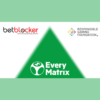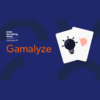In a recent development within the Dutch gaming sector, the Kansspelautoriteit (KSA), commonly known as the Dutch Gaming Authority, has taken decisive action against two companies for violating the role models ban. This significant move underscores the regulatory body’s commitment to upholding stringent standards within the gambling industry and safeguarding vulnerable demographics, particularly youth, from exposure to potentially harmful gambling advertisements.
Understanding the Role Models Ban
Effective from 30th June 2022, the role models ban imposed by the KSA aimed to curtail the use of ‘role models’ in gambling promotions. The term ‘role models’ encompasses individuals with a degree of public prominence, including (former) professional athletes, influencers, and models. By prohibiting their utilization in gambling advertising, the KSA sought to mitigate the influence of such figures on young audiences and reduce the likelihood of them being targeted by gambling promotions.
Instances of Breach
The KSA’s enforcement actions centered on two distinct violations of the role models ban, each highlighting a different aspect of non-compliance within the industry. The first infringement involved an online sports betting provider offering customers the opportunity to acquire a t-shirt featuring a prominent footballer from a Dutch Eredivisie club. This direct association with a well-known athlete contravened the stipulations outlined in the role models ban.
Similarly, the second offense pertained to another gambling operator leveraging images of a renowned actor to promote an online game of chance. By utilizing the likeness of a popular personality in their advertising endeavors, the company ran afoul of the regulations set forth by the KSA, thereby inviting regulatory scrutiny and subsequent punitive measures.
Kansspelautoriteit: Regulatory Response and Remediation
In response to these breaches, the KSA promptly intervened to address the infractions and ensure compliance with established guidelines. While specific details regarding the remedial actions undertaken by the offending companies were not disclosed, the KSA confirmed that appropriate measures had been implemented to rectify the violations. This proactive approach underscores the regulatory authority’s commitment to enforcing regulatory standards and fostering accountability within the industry.
Compliance Requirements for Operators
A spokesperson for the KSA reiterated the importance of adhering to regulatory directives, particularly concerning the use of role models in gambling advertising. Emphasizing the need to safeguard vulnerable demographics from undue influence, the spokesperson outlined the stringent requirements imposed on providers of high-risk games of chance. Such operators are unequivocally prohibited from utilizing role models to promote their offerings, thereby mitigating potential harm to susceptible individuals.
Future Regulatory Initiatives
Looking ahead, the KSA announced its intention to introduce a new set of Responsible Gaming Policy Rules in June, with several provisions slated to come into effect imminently. These forthcoming regulations are poised to further enhance consumer protection measures and bolster responsible gaming practices within the Dutch gambling landscape. By continually refining and reinforcing its regulatory framework, the KSA endeavors to uphold the integrity of the industry while prioritizing the welfare of its constituents.
FAQs About Action Against Role Model Breach in Dutch Gaming Industry
1. What is the role models ban imposed by the KSA?
The role models ban, implemented by the Kansspelautoriteit (KSA), prohibits the use of ‘role models’ in gambling promotions. These role models include individuals with public prominence, such as professional athletes, influencers, and models. The ban aims to protect vulnerable demographics, particularly youth, from exposure to potentially harmful gambling advertisements.
2. What constitutes a breach of the role models ban?
Breach of the role models ban occurs when gambling operators utilize images or associations with well-known personalities, such as athletes or actors, to promote their gambling products. This direct or indirect use of role models in advertising contravenes the regulations set forth by the KSA and can result in regulatory action.
3. What are the consequences of violating the role models ban?
Companies found in breach of the role models ban may face regulatory scrutiny and punitive measures imposed by the KSA. These consequences can include fines, sanctions, or other enforcement actions aimed at ensuring compliance with established guidelines and upholding industry standards.
4. How does the KSA ensure compliance with regulatory directives?
The KSA employs proactive enforcement measures to address infractions and ensure compliance within the gambling industry. This includes conducting investigations, issuing warnings, and imposing sanctions on operators found to be in violation of regulatory requirements. Additionally, the KSA works closely with stakeholders to promote awareness of regulatory obligations and foster a culture of compliance within the industry.
5. What steps can gambling operators take to adhere to regulatory standards?
To comply with regulatory directives, gambling operators must refrain from using role models in their advertising and promotional activities, particularly in relation to high-risk games of chance. Instead, operators should focus on implementing responsible gaming practices, safeguarding vulnerable demographics, and adhering to the principles of consumer protection outlined by the KSA.
6. Are there any upcoming regulatory initiatives from the KSA?
Yes, the KSA has announced its intention to introduce a new set of Responsible Gaming Policy Rules in June, with several provisions slated to come into effect imminently. These forthcoming regulations aim to enhance consumer protection measures, strengthen responsible gaming practices, and further uphold the integrity of the Dutch gambling industry.
7. How can stakeholders stay informed about regulatory developments?
Stakeholders can stay informed about regulatory developments and updates from the KSA by regularly monitoring official announcements, publications, and communications from the regulatory authority. Additionally, industry associations, legal advisors, and professional networks may provide valuable insights and resources to navigate regulatory compliance requirements effectively.


















